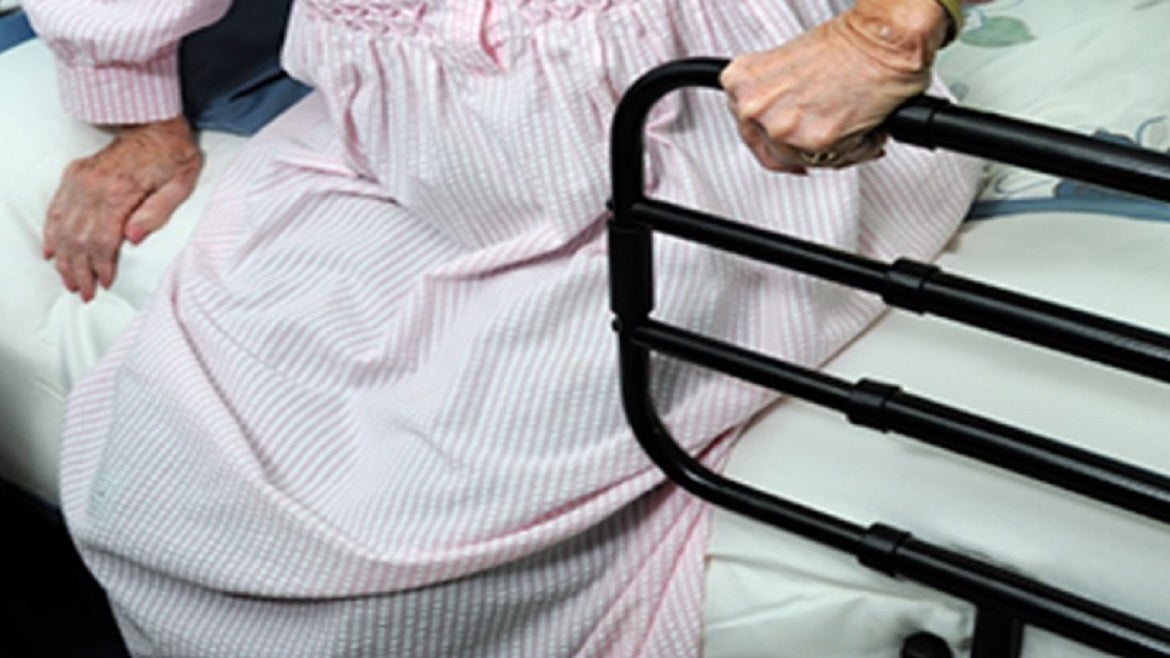The safety devices have led to the deaths of hundreds of elderly patients, CBS MoneyWatch reports.
Guard rails to keep the elderly from falling out of bed can instead become cages that may kill or injure, according to a report.
From 1985 to 2013, the Food and Drug Administration received 901 reports of patients trapped or strangled by hospital bed rails, CBS MoneyWatch reported Tuesday. Of those incidents, 531 resulted in death, 151 were injures and 220 required intervention by staff to prevent injury.
"Most patients were frail, elderly or disoriented," said the agency, which regulates hospital beds manufactured with side rails intended as medical devices.
Bed rails also are frequently used in homes as safety devices to help the elderly pull themselves up and to help them get out of bed.
"There's a lot of guilt on the part of the person who purchased it," said Gloria Black. Her 81-year-old mother, Clara Marshall, died after catching her neck in a side rail in 2007.
Black said her father had purchased the device based on a recommendation from nursing staff at the assisted-living facility where Clara lived. One month after her mother's funeral, the Washington state health department contacted Black to see if she knew the device's role in her mom's death.
"It's very common in these cases. People don't necessarily realize a bed rail was involved," Black said. "Once I found out, the agreement with my father was we need to do something. It led to my advocacy."
In researching what had occurred to her mother, Black learned that others also had been strangled after their necks became trapped in the rails.
An estimated 69,000 adults were treated in U.S. hospital emergency rooms for rail-related injuries from 2003 to 2019, according to the Consumer Product Safety Commission.
Portable rails may be regulated either by the FDA as a medical product or by the CPSC as a consumer product, depending on the intended use, CBS reported.
Advocates including Black have urged banning bed rails, but the federal agencies overseeing the devices have issued recalls and focused on voluntary standards, CBS reported. The network reported the FDA and the CPSC did not respond to requests for comment.
The CPSC's voluntary standard, issued in 2017, includes safety labels and warnings, as well as "instructional literature requirements intended to minimize entrapment and strangulation hazards," the agency said. The FDA began issuing warnings in 1995.
Black and fellow advocates say the standards should be mandatory.
Related Stories






